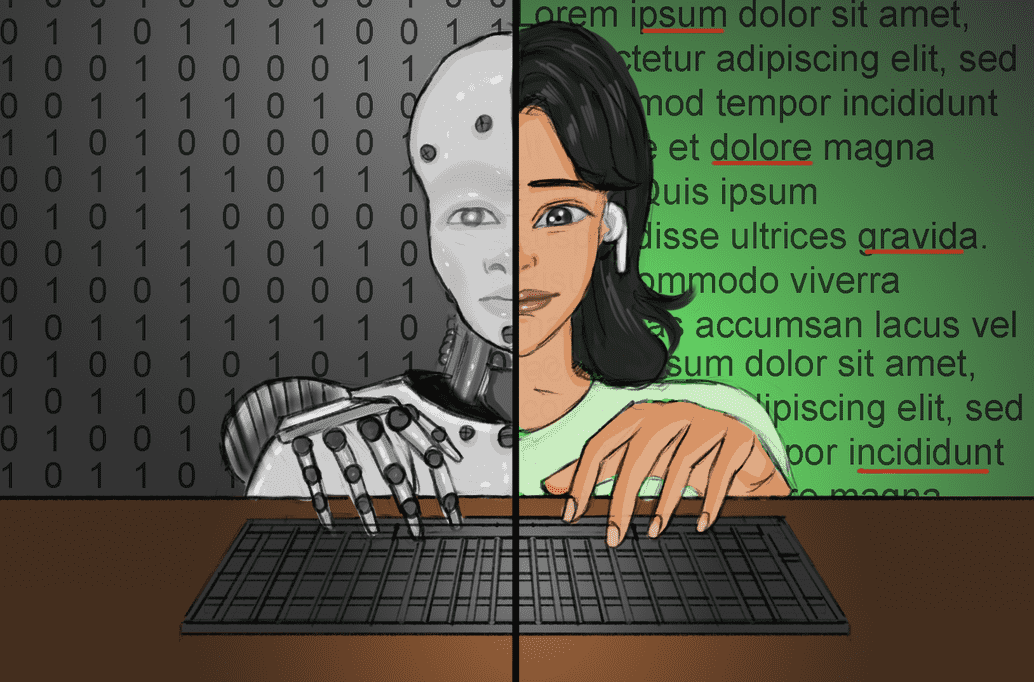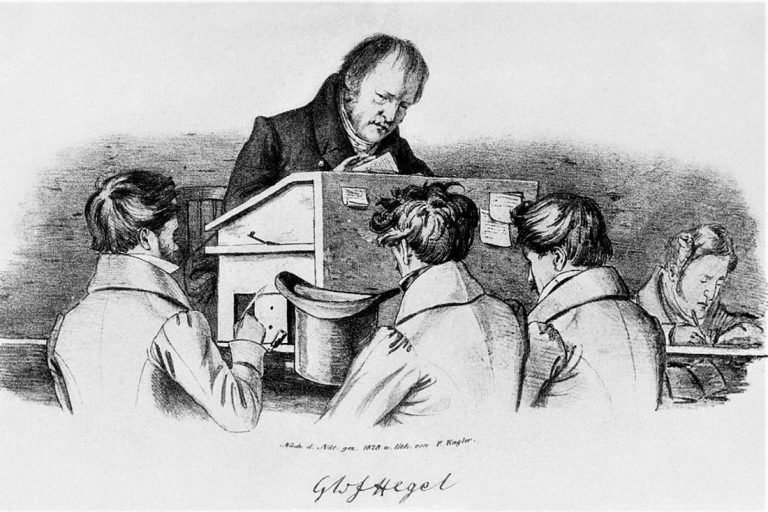AI-Powered writing tools and their impact on the Humanities
As a postgraduate student in sociology, I have a skeptical vision of the drastic and unprecedented social transformation taking place around us, meanwhile keeping a close eye on it, in the wake of globalization. A major contributor to this shift has been the development of cutting-edge AI-based writing tools, which in turn have had an effect on the ways in which we express ourselves, share ideas, and understand the world around us. Here I’ve tried to discuss the implications of current developments in AI writing tools and their implications for the humanities and the professionals who work in this field.
Artificial Intelligence powered writing tools
The purpose of these AI-powered writing aids is to make the writing process easier and faster for the user. Text that looks and reads like it was written by a person is generated using machine learning and natural language processing algorithms. These programs may create content in a variety of formats, from academic papers to news stories to advertising copy to social media updates. OpenAI’s GPT-3, 3.5, 4, and DALL-E 2, Conversion.ai’s Jarvis, and Hugging Face’s Transformers are just a few of the well-known AI authoring tools.
Ground-breaking developments in AI writing and imaging tools have occurred very recently. Poetry, music composition, and code generation are just a few examples of the many human-like skills GPT-3 has. The publishing landscape has expanded as a result, especially in the realm of journalism where some publications have already published pieces created by artificial intelligence. Concerns have been voiced, however, concerning the effect that AI-generated material will have on the reliability of data.
The humanities have been affected in several ways by AI writing tools. One positive aspect is that they may help you write faster and more effectively, which is very useful in business and marketing. Those who have learning disabilities like dyslexia might also benefit from their services. But, the advent of AI writing tools has far-reaching consequences for the future of free speech, original thought, and even the job market.
The best-selling author of Sapiens and Homo Deus, Yuval Noah Harari, was concerned about the impact of artificial intelligence on people’s ability to find work and be creative in the future. His argument in “21 Lessons for the 21st Century” is that regular and repetitive human labor will be replaced by AI technology. Writing careers like content development, copywriting, and even journalism fall under this category. This has significant implications for the future of the humanities and the role of humans in shaping the narrative of our world.
The primary influence that AI writing tools will have on the field of humanities will extend well beyond the subject of employment. These give rise to more fundamental inquiries about the nature of human expression and creativity. The capability of artificial intelligence to create a language that is eerily similar to that produced by humans raises doubts about the authenticity and originality of written work. This has repercussions for areas like literature, where the worth of a piece of work resides in its ability to express itself creatively and in a unique manner.
From a Sociological Viewpoint
The emergence of AI writing tools has resulted in substantial shifts in the humanities, and sociological approaches have the potential to provide illuminating analyses of these shifts in the field. Exploring the impact that AI writing tools have had on writing, creativity, and the humanities as a whole can be done by evaluating these changes through the works of founding fathers of Sociology like Max Weber, Karl Marx, and Emile Durkheim. This evaluation can be used to explore the impact that AI writing tools have had. When we are able to get a more in-depth grasp of the consequences that this technology has for human labor in the areas of creativity and expression within the humanities.
The idea of “rationalization” that was proposed by Max Weber has a lot to do with the growing prevalence of using AI in writing. The term “rationalization” refers to the trend in social life toward placing a greater premium on predictability, efficiency, and control. AI technologies are being utilized in the context of writing to expedite and automate many elements of the writing process. These components include research and planning, as well as checking for grammar and spelling errors. Although this may result in more productive writing processes, it also raises significant considerations about the significance and value of writing in and of itself. The more writing is rationalized and reduced to a simple work to be accomplished, the more likely it is that the creative and expressive qualities of writing will be relegated to the background or perhaps eliminated completely.
Karl Marx’s explanation of “alienation” may also be used to offer insight into how artificial intelligence would affect the humanities. Workers are alienated from the goods that result from their labor, as well as from one another and from the larger social and economic structure when they are cut off from the fruits of their labor. There is a possibility that human jobs and skills will be replaced, either in part or in their entirety, by automated tools as the use of AI continues to grow in the writing industry. This could result in a feeling of disconnection and helplessness among those who are involved in the writing community. In addition, the growing influence of AI in writing may result in a broader feeling of alienation within the field of humanities, since the function of human creativity and expression will be diminished as a result of this trend.
We may also look at the impact of AI on humanities-related creative endeavors and expression via the perspective of Emile Durkheim’s concept of “anomie.” This is an important and relevant lens to use. Anomie is characterized by a feeling of confusion and a lack of direction, both of which may develop in response to a muddled or hazy understanding of societal rules and values. When AI technologies become more commonplace in writing and other forms of creative expression, there is a possibility that human creativity could be repressed or perhaps eradicated entirely. This might ultimately lead to a feeling of confusion and lack of purpose within the humanities, as authors and thinkers will eventually struggle to adjust to a quickly shifting terrain. Therefore, the field as a whole could become less focused.
The buzz around AI powered writings
Several news pieces have been generated using AI writing techniques, leading some to worry about the spread of fake news and propaganda. OpenAI unveiled a language model dubbed GPT-2 in 2019 that could produce natural-sounding writing. OpenAI, however, opted not to reveal the entire version of the model to the public because of concerns that it may be misused. OpenAI has been hard at work improving its language models since the publication of GPT-2 in 2019, and their newest and most powerful models GPT-3, 3.5, and 4 were just released consecutively. GPT-3 has been used in a variety of contexts, such as content generation, language translation, and chatbots, because of its ability to create high-quality text that is almost indistinguishable from human writing. Concerns have been voiced regarding consecutively the possibility for disinformation and propaganda to proliferate with the use of AI writing tools like GPT-3. Although these models may generate language that sounds natural, they cannot check their work for correctness. There was a discussion on the effect of this decision on the spread of false news and the ethics of using AI writing tools.
Writing applications powered by AI have also achieved important advancements in the area of humanities studies. For example, software programs like Grammarly and Hemingway, which are driven by artificial intelligence, have been helpful to students and researchers in improving their writing abilities. These programs do an analysis of the text and then provide recommendations for enhancing its grammar, tone, and style. Because of this, it is now much simpler for writers to create work of high quality, which has, in turn, contributed to an increase in the general level of research and academic writing.
Yet, growing worries have been voiced concerning the possible effect that increased usage of AI writing tools may have on employment opportunities for humans. There is a concern that as AI writing tools get more proficient, they may eventually replace human writers and journalists, which would result in a loss of employment opportunities and a degradation in the quality of writing. In addition, there is a fear that the usage of AI writing tools may lead to a homogeneity of writing styles, which would result in a loss of variety as well as originality. This is due to the fact that AI writing tools are becoming more sophisticated.
Conclusion
For a number of reasons, it is now obvious that recent developments in AI writing tools have had a considerable effect on the humanities. These instruments provide a variety of benefits, including increased production and efficiency. They also raise issues like those related to the validity and originality of human expression, as well as the loss of human employment and talents. In contrast, AI writing tools have advanced significantly over time, having both positive and negative effects on the humanities. While these technologies have made writing easier and raised the quality of authors’ work, it is essential to make sure that they are utilized sensibly and morally. Technology development and human engagement in the creative process should be in harmony in order to attain this balance. It is crucial to keep a close eye on how AI is affecting the humanities and to put policies in place to make sure that its application complies with moral and social norms.
References
- Harari, Y. N. (2018). 21 Lessons for the 21st Century. New York: Spiegel & Grau.
- Weber, M. (2009). The Protestant Ethic and the Spirit of Capitalism. Oxford: Oxford University Press.
- Marx, K. (1978). Economic and Philosophic Manuscripts of 1844. Moscow: Progress Publishers.
- Durkheim E. (1933). The Division of Labour in Society. 1893 George Simpson, Trans. New York: Macmillan.









Nice
Very nicely written